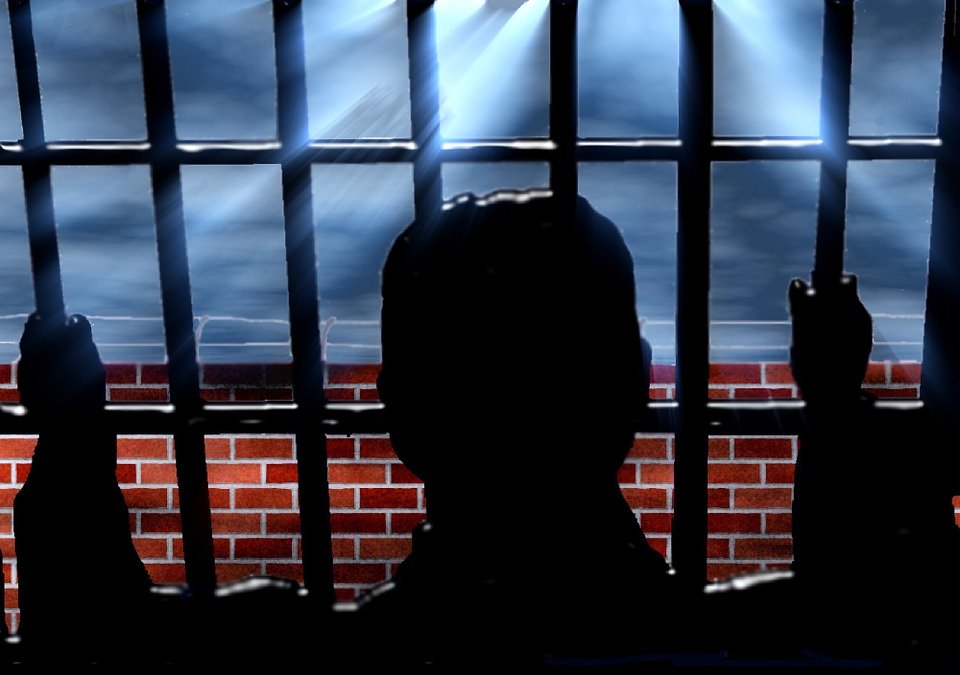As coronavirus cases rise, Indian jails begin releasing prisoners on bail

New Delhi, March 30: State governments across the country have begun releasing prisoners on bail for the next 30-60 days to prevent community transmission of COVID-19 within the jail premises, as India stares at potential stage-3 of the highly contagious virus.
The Madhya Pradesh government on Monday issued a statement saying that it was “releasing about 5,000 convicts on emergency parole of 60 days. Another 3,000 undertrials will be released on interim bail of 45 days, in the next two days.”
The Madhya Pradesh government’s move comes close on the heels of Delhi, Uttar Pradesh and Maharashtra releasing prisoners on bail, to prevent overcrowding in its facilities.
On Saturday, the Uttar Pradesh government decided to release 11,000 prisoners across 71 of the state’s jails to decongest the facilities, even as Maharshtra Home Minister Anil Deshmukh has directed the state to release as many as 11,000 convicted and undertrial prisoners who are in jail for offences with prescribed punishment up to seven years or less.
Delhi’s Tihar Jail — largest prison facility in the country – which houses 17,500 inmates, plans to release 3000 prisoners, of which 400 have already been released. Although concerns about an exodus – akin to the migrant exodus – are writ large, prison authorities said, they have been careful to release on bail inmates belonging to the same city.
Other states too, are now stepping up action to decongest prison facilities to avoid a community outbreak of the virus.
At the same time, prison authorities have also stopped all interactions of inmates with outsiders, whilst also stepping up medical and isolation facilities within the jail premises.
“Isolation wards are earmarked in each jail for any inmate showing flu like symptoms. There is proper medical screening of new inmates and they are being kept in separate barracks for at least 3 days,” director general of Tihar Jail Sandeep Goel said, adding that all interactions between inmates and their families have been stopped for now.
“Family meetings have been stopped and they can talk over the phone. By the orders of Delhi High Court all court productions of inmates have been stopped. We have also carried out sensitization of jail staff as well as inmates about general hygiene and precautions regarding coronavirus and masks, hand sanitizers and handwash are being provided to staff and inmates where required,” Goel added.
The Supreme Court, earlier this month, had ordered states to consider releasing prisoners on parole.
“There is a Supreme Court judgement and the entire country will have to follow this. There has been a meeting chaired by Chief Justice as well as the DG of prisons. And there are clear cut directions and implementation is on the way because there are some procedures to be followed. if I remember it correctly, some of them will go on release on bail. Those who are under trials, they will go on automatic bail. And those who are convicts will go on parole,” said Praveen Sood, DG & IGP Karnataka.
Another senior police official in Karnataka, who did not wish to be named, added that, “There are many things that need to be worked out like the formation of district committees, presenting of details to the courts and only after that can we get a number or clarity on how many will be released. For those convicted, it has to be a under seven-year punishment and only a single crime. There are around 15000 prisoners in all central, district and taluka prisons in the state.”
Experts however, stated that authorities who were releasing prisoners, needed to be mindful when releasing inmates, in order to provide for a safe transit of the inmates to their homes, with minimal contact with other people.
“In view of the nation-wide lockdown, it is imperative that provisions be made for the safe transit for all prisoners, released on parole or bail, from the prison to their homes. Further, they must be provided some subsistence to support them after their release,” said Madhurima Dhanuka, Programme Head, Prison Reforms Programme, of the Commonwealth Human Rights Initiative.
Sign up for our weekly newsletter to stay up to date on our product, events featured blog, special offer and all of the exciting things that take place here at Legitquest.




Add a Comment